
The Takeda Pharmaceutical Company Limited is a Japanese multinational pharmaceutical company, with partial American and British roots. It is the third largest pharmaceutical company in Asia, behind Sinopharm and Shanghai Pharmaceuticals, and one of the top 20 largest pharmaceutical companies in the world by revenue. The company has over 49,578 employees worldwide and achieved US$19.299 billion in revenue during the 2018 fiscal year. The company is focused on oncology, rare diseases, neuroscience, gastroenterology, plasma-derived therapies and vaccines. Its headquarters is located in Chuo-ku, Osaka, and it has an office in Nihonbashi, Chuo, Tokyo. In January 2012, Fortune Magazine ranked the Takeda Oncology Company as one of the 100 best companies to work for in the United States. As of 2015, Christophe Weber was appointed as the CEO and president of Takeda.

AstraZeneca plc is an Anglo-Swedish multinational pharmaceutical and biotechnology company with its headquarters at the Cambridge Biomedical Campus in Cambridge, England. It has a portfolio of products for major diseases in areas including oncology, cardiovascular, gastrointestinal, infection, neuroscience, respiratory, and inflammation. It has been involved in developing the Oxford–AstraZeneca COVID-19 vaccine.
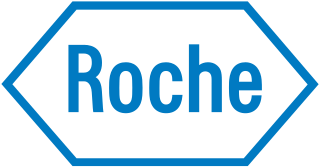
F. Hoffmann-La Roche AG, commonly known as Roche, is a Swiss multinational healthcare company that operates worldwide under two divisions: Pharmaceuticals and Diagnostics. Its holding company, Roche Holding AG, has shares listed on the SIX Swiss Exchange. The company headquarters are located in Basel. Roche is the fifth-largest pharmaceutical company in the world by revenue and the leading provider of cancer treatments globally.
Keck Graduate Institute (KGI) is a private graduate school in Claremont, California. Founded by Henry Riggs and David Galas in 1997, it is the seventh and newest member of the Claremont Colleges.

Amgen Inc. is an American multinational biopharmaceutical company headquartered in Thousand Oaks, California. One of the world's largest independent biotechnology companies, Amgen's Thousand Oaks staff in 2022 numbered approximately 5,000 and included hundreds of scientists, making Amgen the largest employer in Ventura County. As of 2022, Amgen has approximately 24,000 staff in total.

Biocon Limited is an Indian biopharmaceutical company based in Bangalore. It was founded by Kiran Mazumdar-Shaw in 1978. The company manufactures generic active pharmaceutical ingredients (APIs) that are sold in approximately 120 countries, including the United States and Europe. It also manufactures novel biologics as well as biosimilar insulins and antibodies, which are sold in India as branded formulations. Biocon's biosimilar products are also sold in both bulk and formulation forms in several emerging markets.
Danaher Corporation is an American globally diversified conglomerate founded by brothers Steven and Mitchell Rales in 1984. Headquartered in Washington, D.C., the company designs, manufactures, and markets medical, industrial, and commercial products and services. It has primarily grown by acquisitions, and historically has tried to maintain a very low public profile. Danaher was one of the first companies in North America to adopt the Kaizen principles to manufacturing, which is a lean manufacturing Japanese philosophy of continuous improvement and elimination of waste.
C.H. Boehringer Sohn AG & Co. KG is the parent company of the Boehringer Ingelheim group, which was founded in 1885 by Albert Boehringer (1861–1939) in Ingelheim am Rhein, Germany. As of 2018, Boehringer Ingelheim is one of the world's largest pharmaceutical companies, and the largest private one. Headquartered in Ingelheim, it operates globally with 146 affiliates and more than 47,700 employees. Unlike most large pharmaceutical companies which are listed, the company is private and fully owned by the Boehringer, Liebrecht and von Baumbach families. The company's key areas of interest are: respiratory diseases, metabolism, immunology, oncology and diseases of the central nervous system. Boehringer Ingelheim is a full member of the European Federation of Pharmaceutical Industries and Associations (EFPIA). The corporate logo of Boehringer Ingelheim depicts a stylized rendition of the central section of the imperial palace of Charlemagne.

Celltech Group plc was a leading British-based biotechnology business based in Slough. It was listed on the London Stock Exchange and was a constituent of the FTSE 100 Index. Celltech was instrumental in changing the UK's system of technology transfer from research to business, and in creating the biotechnology industry.
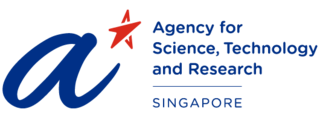
The Agency for Science, Technology and Research (A*STAR) is a statutory board under the Ministry of Trade and Industry of Singapore.
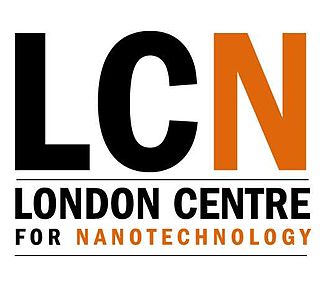
The London Centre for Nanotechnology is a multidisciplinary research centre in physical and biomedical nanotechnology in London, United Kingdom. It brings together three institutions that are world leaders in nanotechnology, University College London, Imperial College London and King's College London. It was conceived from the outset with a management structure allowing for a clear focus on exploitation and commercialisation. Although based at UCL's campus in Bloomsbury, the LCN includes research in departments of Imperial's South Kensington campus and in King's Strand campus.
UCLPartners is an academic health science centre located in London, England. It is the largest academic health science centre in the world, treats more than 1.5 million patients each year, has a combined annual turnover of around £2 billion and includes around 3,500 scientists, senior researchers and consultants.
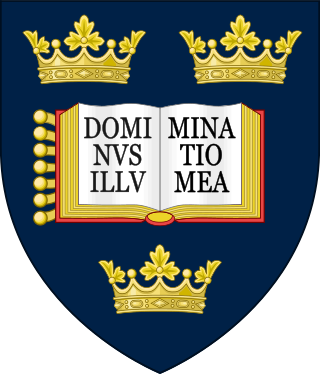
Oxford University Innovation Limited (OUI) is a British technology transfer and consultancy company created to manage the research and development (R&D) of University spin-offs. OUI is a wholly owned subsidiary of the University of Oxford, and is located on Botley Road, Oxford, England. OUI was previously known as Isis Innovation (1988–2016) and Oxford University Research and Development Ltd (1987–1988).

Cambridge Antibody Technology was a biotechnology company headquartered in Cambridge, England, United Kingdom. Its core focus was on antibody therapeutics, primarily using Phage Display and Ribosome Display technology.
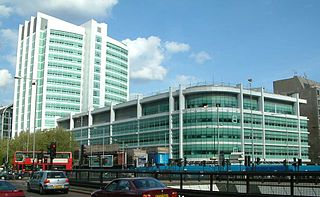
The UCLH Biomedical Research Centre is a biomedical research centre based in London. It is a partnership between University College London Hospitals NHS Foundation Trust (UCLH), University College London (UCL) the National Institute for Health and Care Research (NIHR) and UCLPartners. It was one of the original five Comprehensive Biomedical Research Centres established by the NIHR in April 2007.
The pharmaceutical industry in the United Kingdom directly employs around 73,000 people and in 2007 contributed £8.4 billion to the UK's GDP and invested a total of £3.9 billion in research and development. In 2007 exports of pharmaceutical products from the UK totalled £14.6 billion, creating a trade surplus in pharmaceutical products of £4.3 billion.
AbbVie Inc. is an American pharmaceutical company headquartered in North Chicago, Illinois. It is ranked 6th on the list of largest biomedical companies by revenue. The company's primary product is Humira (adalimumab), administered via injection. It is approved to treat autoimmune diseases including rheumatoid arthritis, Crohn's disease, plaque psoriasis, and ulcerative colitis.
Horizon Therapeutics was a biopharmaceutical company focused on researching, developing, and commercializing medicines that address critical needs for people impacted by rare and rheumatic diseases. Horizon primarily markets products in the United States, which represented 97% of Horizon's 2019 worldwide sales. Amgen acquired the company in October 2023.
Biotechnology in India is a sunrise sector within the Indian economy. Agencies of the Government of India concerned with the biotechnology industry include the Department of Biotechnology and the proposed Biotechnology Regulatory Authority of India. As of 2022, the sector is valued at $80 billion. Biotechnology in India is in a growth phase and the sector is expected to be valued at $150 billion by 2025 and surpass $300 billion in value by 2030.

Greater Boston, primarily Boston and Cambridge, is home to more than 1,000 biotechnology companies, ranging from small start-ups to billion-dollar pharmaceutical companies. The many universities in the area give the region a large network of scientists.











